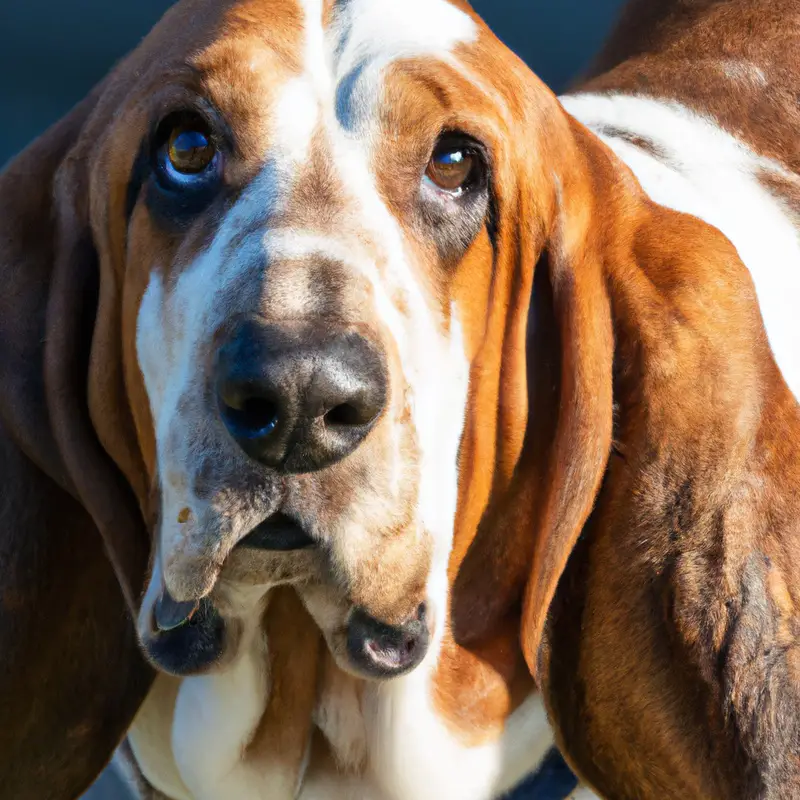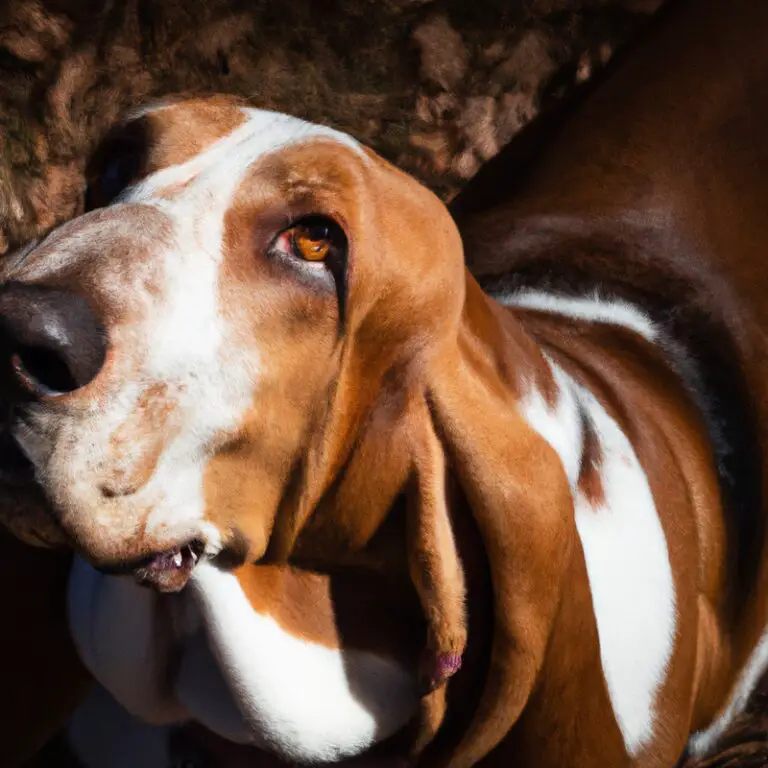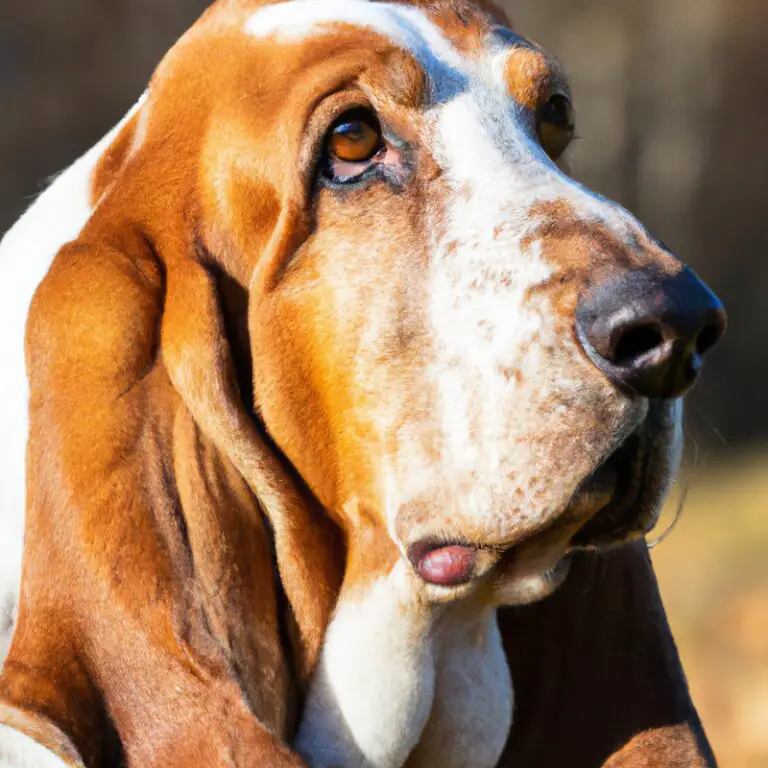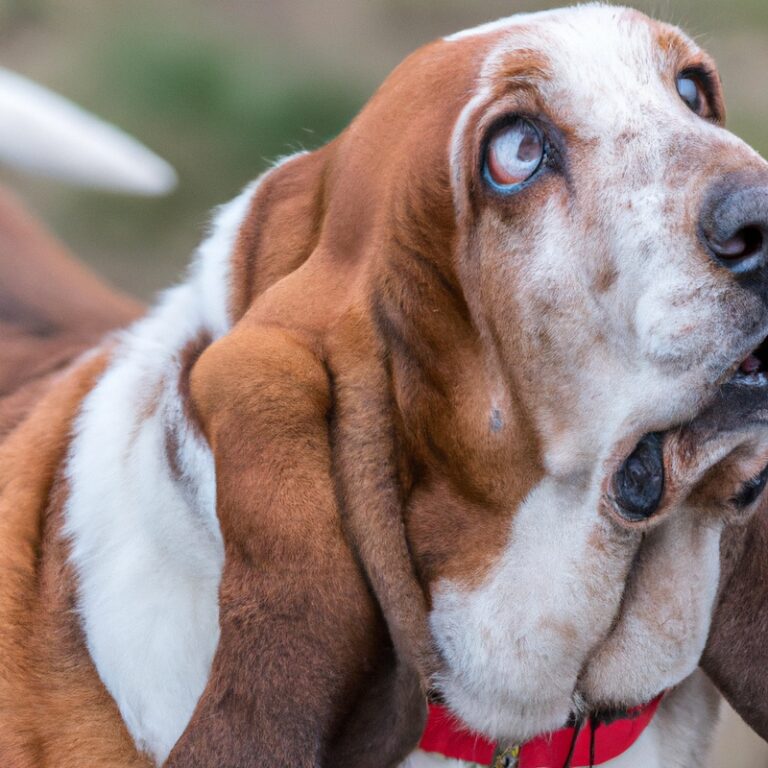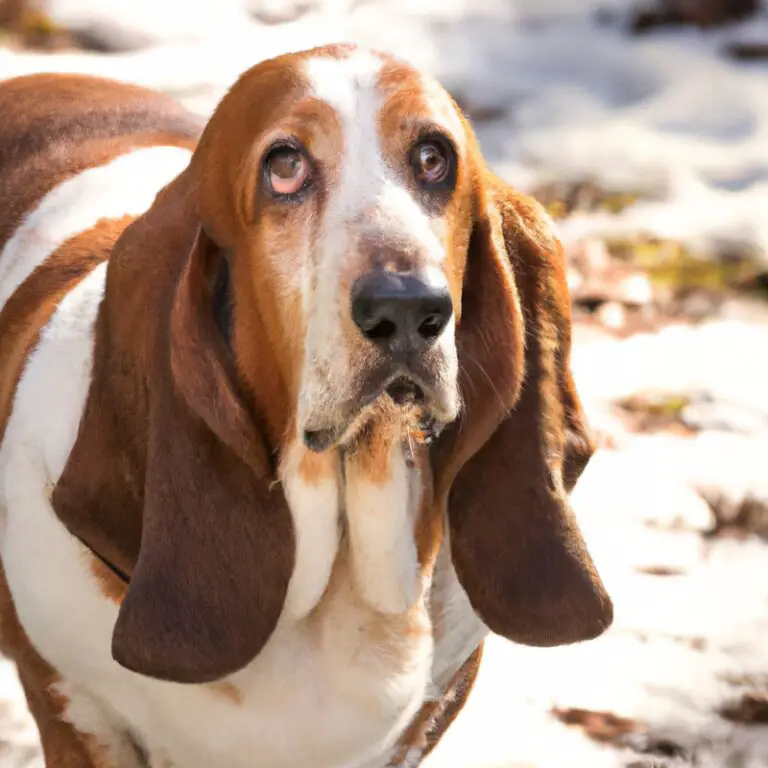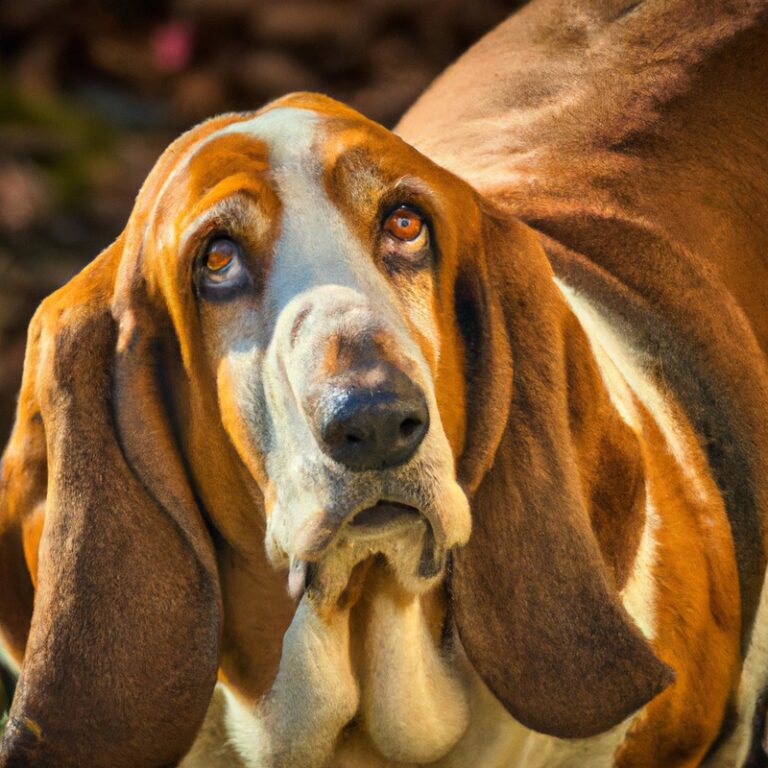How Do Basset Hounds Behave When Home Alone?
Key Takeaways:
- Basset Hounds may experience separation anxiety when left alone for long periods.
- They are prone to destructive behaviors when bored or anxious.
- Providing mental stimulation and interactive toys can help alleviate their boredom.
- It is important to gradually train Basset Hounds to be comfortable with being alone to avoid anxiety issues.
Have you ever wondered what goes on in the mind of a Basset Hound when they’re left alone at home? As an expert in canine behavior, I’ve delved deep into the unique nature of these adorable droopy-faced dogs.
Basset Hounds may be known for their laid-back demeanor, but that doesn’t mean they don’t feel the pangs of separation anxiety or exhibit certain behavior traits when home alone.
In this article, I’ll take you through the fascinating world of Basset Hound behavior, covering common traits, separation anxiety, and strategies to keep them calm. So, let’s dive in and unravel the secrets behind those soulful eyes!
| Behavior | Description |
| Barking | Basset Hounds are prone to excessive barking when left alone for long periods. They may bark due to separation anxiety or boredom. |
| Destructive behavior | When bored or anxious, Basset Hounds may chew on furniture, shoes, or other household items. |
| Howling | Some Basset Hounds may howl in response to loneliness or as a form of communication when left alone. |
| Restlessness | They may wander around the house, pacing, or engaging in restless behaviors due to separation anxiety. |
| Anxiety | Many Basset Hounds experience separation anxiety, leading to behaviors like panting, excessive drooling, and accidents indoors when left alone. |
Understanding Basset Hound Behavior
The Nature of Basset Hounds
Basset Hounds have a unique nature that sets them apart from other dog breeds. With their distinctive droopy ears and soulful eyes, Bassets are known to be friendly and gentle.
They have a calm and laid-back temperament, making them great companions for families and individuals of all ages.
Bassets are also known for their excellent sense of smell and tracking abilities, as they were originally bred for hunting. However, it’s important to keep in mind that each Basset Hound may have its own personality and behavior quirks.
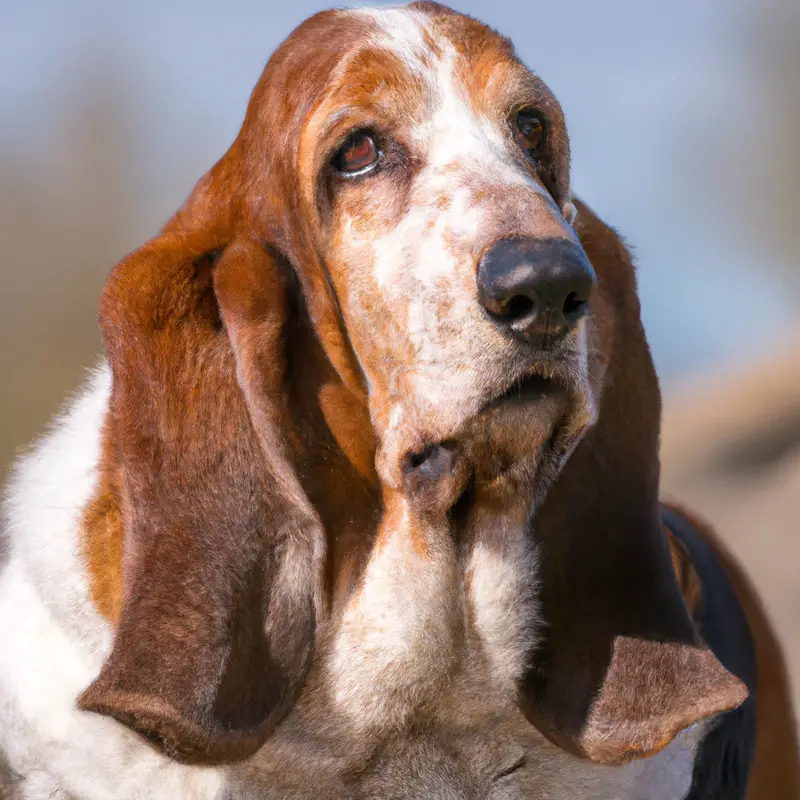
Common Behavior Traits
Basset Hounds have some common behavior traits that are worth knowing. They are known for being quite docile and friendly, making them great companions.
Additionally, they tend to have a laid-back and easygoing nature, which can be seen in their behavior.
Basset Hounds are also known for being a bit stubborn at times, which can make training a bit challenging. Lastly, they have a strong sense of smell and may become distracted when they catch a scent, so it’s important to keep them on a leash during walks.
Separation Anxiety in Basset Hounds
Basset Hounds, like many other dogs, can experience separation anxiety when left alone.
This condition is characterized by signs of distress such as excessive barking, destructive behavior, and house soiling.
To address separation anxiety in Basset Hounds, it’s important to provide them with a safe and comfortable space, interactive toys, and establish a routine.
Exercise and mental stimulation, calming music or white noise, and professional dog walking or pet sitting services can also help keep them calm.
If the anxiety persists, consulting a veterinarian or animal behaviorist and considering medication or professional dog training may be necessary.
Monitoring their behavior through surveillance cameras and keeping a behavior journal is essential for assessing their progress.
Preparing Your Home for a Basset Hound
Providing a Safe and Comfortable Space
When it comes to providing a safe and comfortable space for your Basset Hound, there are a few key things to keep in mind.
Firstly, ensure that the area is free from any hazards or objects that could potentially harm your dog.
This includes keeping harmful substances out of reach and ensuring that any cords or electrical wires are properly secured.
Secondly, make sure that your Basset Hound has access to a cozy and comfortable bed or crate where they can rest undisturbed.
Thirdly, consider providing interactive toys and puzzles that can keep your dog mentally stimulated while they are alone.
By creating a safe and comfortable space, you can help alleviate any anxiety your Basset Hound may experience when home alone.
Interactive Toys and Treats
Interactive toys and treats are essential for keeping a Basset Hound entertained and mentally stimulated when they are home alone.
These toys engage their natural instincts to sniff and search for treats, providing both mental and physical stimulation.
Puzzle toys, treat-dispensing toys, and interactive balls are great options.
Additionally, chew toys can help satisfy their need to chew and prevent destructive behavior.
Remember to choose toys and treats that are safe for your Basset Hound and always supervise them during playtime.
Establishing a Routine
Establishing a routine is important for Basset Hounds.
I recommend setting regular times for meals, walks, and playtime.
This helps them feel secure and can prevent anxiety.
Make sure to include mental stimulation, like puzzle toys, in their routine to keep them entertained.
It’s also a good idea to establish a bedtime routine to help them settle down at night.
Remember to be consistent with your routine as Basset Hounds thrive on predictability.
Strategies for Keeping Basset Hounds Calm
Exercise and Mental Stimulation
Exercise and mental stimulation are essential for keeping Basset Hounds calm and happy.
Regular exercise helps to release their energy and prevents them from becoming bored or anxious.
Take your Basset Hound for daily walks or jogs, and consider engaging in activities like playing fetch or going for a swim.
Mental stimulation can be provided through puzzle toys, interactive feeding games, and training sessions.
These activities help to keep their minds engaged and prevent behavioral issues.
Make sure to incorporate both physical exercise and mental stimulation into your Basset Hound’s daily routine for a well-balanced and contented companion.
Calming Music or White Noise
If you’re looking for ways to keep your Basset Hound calm when home alone, consider using calming music or white noise. Both options can help create a soothing environment and mask any external noises that may trigger anxiety in your dog.
Calming music, specifically designed for dogs, can have a relaxing effect on them.
Similarly, white noise machines can also provide a constant, gentle background noise that can help drown out distractions. Experiment with different types of music or white noise to find what works best for your Basset Hound.
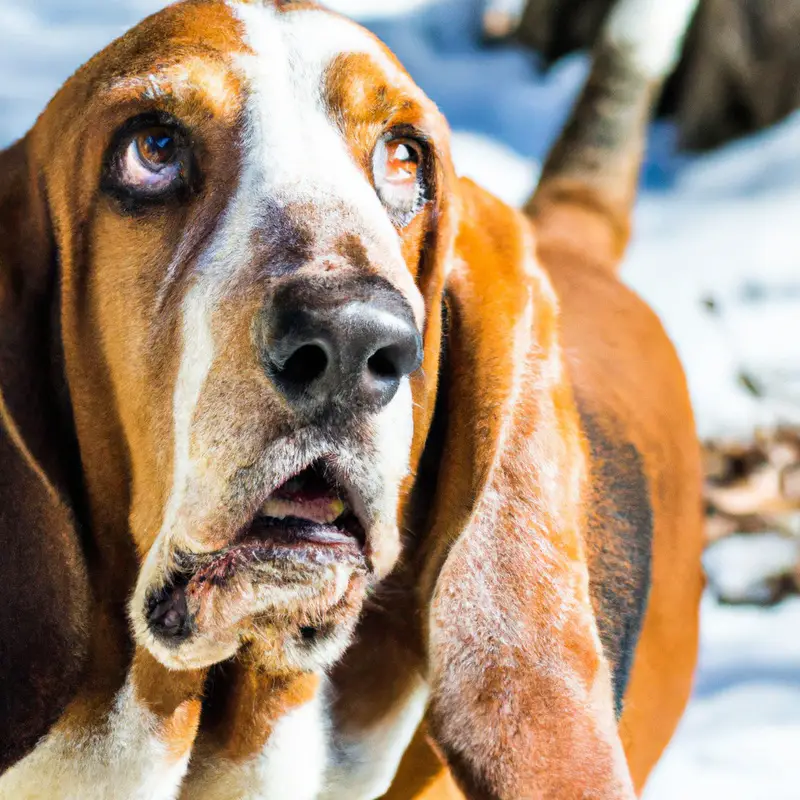
Professional Dog Walking or Pet Sitting Services
Professional dog walking or pet sitting services can be a great option for keeping your Basset Hound calm when you’re not at home. These services provide exercise and companionship, which can help alleviate anxiety and boredom.
A professional dog walker will ensure that your Basset Hound gets the exercise they need, while a pet sitter can provide companionship and engage your dog in playtime and mental stimulation.
By seeking out these services, you can have peace of mind knowing that your Basset Hound is well taken care of while you’re away.
Training and Socialization for Basset Hounds
Obedience Training
Obedience training is essential for Basset Hounds to learn proper behavior and follow commands.
Here are some key points to consider:
- Start early: Begin training your Basset Hound as soon as you bring them home, using positive reinforcement techniques.
- Focus on basic commands: Teach commands like sit, stay, come, and heel. Keep training sessions short and consistent.
- Use rewards: Offer treats, praise, and affection to motivate your Basset Hound during training sessions.
- Be patient: Basset Hounds can be stubborn, so patience is key. Stay calm and avoid getting frustrated.
- Seek professional help if needed: If you encounter difficulties during training, consider hiring a professional dog trainer for guidance.
Remember, obedience training not only promotes good behavior but also strengthens the bond between you and your Basset Hound.
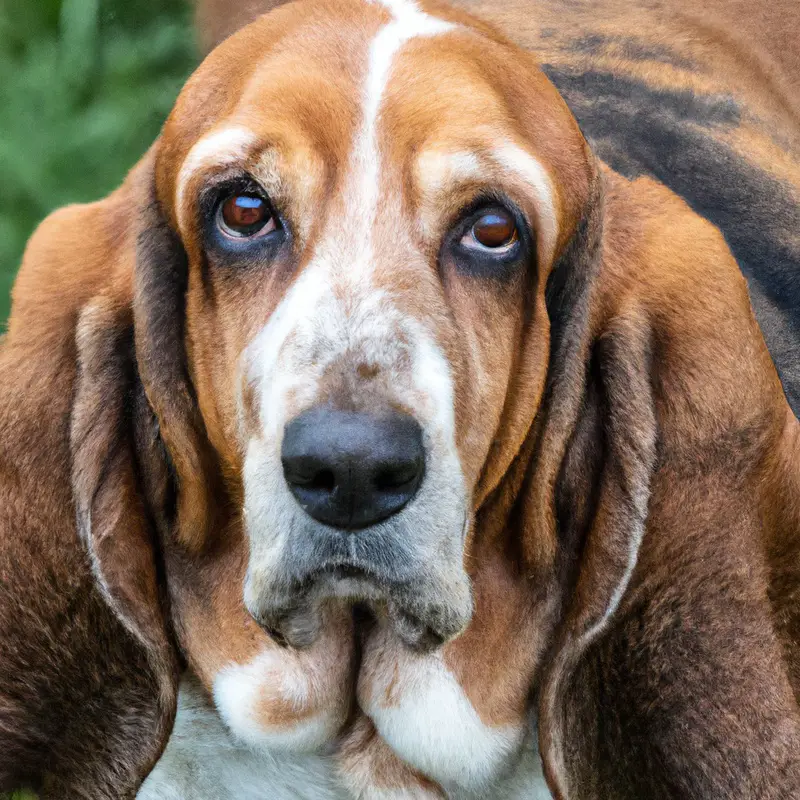
Desensitization Techniques
Desensitization techniques can help Basset Hounds become more comfortable when home alone.
One method is gradual exposure: start by leaving them alone for short periods and gradually increase the time.
Another technique is to create positive associations with your absence by giving them treats or toys before you leave.
Providing a safe and secure space, such as a crate or designated area, can also help them feel more at ease.
Remember to be patient and consistent with these techniques to help your Basset Hound adjust to being home alone.
Socializing Your Basset Hound
Socializing your Basset Hound is essential for their overall well-being and behavior.
Start by introducing them to different people, animals, and environments at a young age.
Take them on walks, visit dog parks, and arrange playdates with other friendly dogs.
Expose them to various sights, sounds, and smells.
Provide positive reinforcement during interactions to build their confidence.
Regular socialization helps prevent behavioral issues and ensures a happy, well-adjusted Basset Hound.
Seeking Professional Help When Needed
Consulting a Veterinarian or Animal Behaviorist
If you’re struggling with your Basset Hound’s behavior when they’re home alone, it’s a good idea to consult a veterinarian or animal behaviorist. These professionals have the knowledge and experience to assess your dog’s specific behavior and provide guidance on how to address it.
They can help identify any underlying health issues or anxiety-related problems that may be causing the behavior.
Additionally, they can suggest training techniques or recommend medication if necessary. Don’t hesitate to reach out to these experts for support in understanding and managing your Basset Hound’s behavior.
Medication Options for Severe Anxiety
If your Basset Hound experiences severe anxiety when home alone, medication options can help.
Talk to your veterinarian about possible medications that may help alleviate your dog’s anxiety.
They can prescribe anti-anxiety medications or recommend supplements that promote relaxation.
It’s important to follow the vet’s instructions and dosage guidelines carefully.
Additionally, regular check-ins with the vet can help monitor the effectiveness of the medication and make any necessary adjustments.
Medication should always be used in conjunction with behavioral and environmental modifications for best results.
Hiring a Professional Dog Trainer
When it comes to addressing behavioral issues in your Basset Hound, hiring a professional dog trainer can be a valuable resource. A dog trainer will have the expertise and experience to identify and help correct any problem behaviors your Basset Hound may exhibit when home alone.
They can provide customized training plans and techniques tailored to your dog’s specific needs.
A professional trainer can also offer guidance and support, giving you the tools and knowledge to effectively manage your dog’s behavior. Working with a professional can greatly improve your Basset Hound’s overall well-being and ensure a harmonious home environment.
Monitoring and Assessing Your Basset Hound’s Behavior
Using Surveillance Cameras
Using surveillance cameras can be a valuable tool to monitor your Basset Hound’s behavior when you’re not home.
It allows you to check in on them and see how they are doing.
The cameras can help you identify any signs of distress or anxiety, such as excessive barking, pacing, or destructive behavior.
By having this visual information, you can address any issues promptly and find solutions to keep your Basset Hound calm and comfortable in your absence.
Just make sure to position the cameras in areas where your dog spends most of their time.
Recognizing Signs of Distress
Recognizing signs of distress in your Basset Hound is essential for their well-being. Some common signs include excessive barking, destructive behavior, pacing, drooling, and bathroom accidents.
They may also display physical symptoms like trembling, panting, and rapid heartbeat.
It’s important to pay attention to changes in behavior, appetite, and sleep patterns. Additionally, if your Basset Hound appears anxious or displays avoidance behavior, it could indicate distress.
Monitoring their behavior closely will help you identify any signs of distress and take appropriate action to ensure their comfort and happiness.
Keeping a Behavior Journal
Keeping a behavior journal is an effective way to monitor and track your Basset Hound’s behavior. By recording their actions, emotions, and any changes in their routine, you can identify patterns and potential triggers for negative behavior.
Include details such as their activities, interactions, and any signs of distress or anxiety.
This will help you understand your dog better and provide valuable information if you decide to consult a professional trainer or behaviorist.
Final Verdict
Understanding Basset Hound behavior when home alone is crucial for their well-being and your peace of mind. Basset Hounds are known for their laid-back and loving nature, but they can also experience separation anxiety.
To prepare your home, create a safe and comfortable space, provide interactive toys, and establish a routine.
Keeping them calm can be achieved through exercise, mental stimulation, and the use of calming music. Training and socialization are essential for their overall behavior, and seeking professional help when needed is crucial.
Regularly monitor and assess their behavior to catch any signs of distress.
By implementing these strategies, you can ensure a happy and well-adjusted Basset Hound. Remember, each dog is unique, so be patient and understanding throughout the process.

